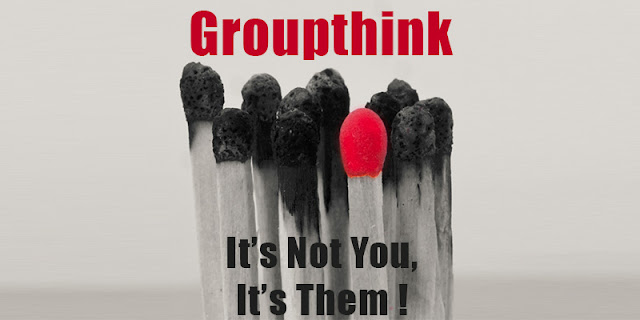Think about the last time you were genuinely satisfied, happy, or even amazed by something in Lebanon. Now, take a moment and think about what made you feel this way. Chances are, in 9 out of 10 cases, you had such low expectations, that the simple fact of things being done properly left you with unprecedented sentiments of elation. You even probably rushed to tell your friends about it using expressions such as “For a moment I forgot I was in Lebanon”, or “they were so professional, I thought it was a foreign company”, or even “The finishing was amazing, like imported brands”.
Why do we do this? Because Lebanon has fully embraced a culture of mediocrity*.
I understand that, at this point, some might already feel the need to crack their knuckles to type that
scathing comeback, while revving their fake patriotism engines on indignation fuel, but how about we embark on a joint mea culpa and examine how we are all contributing in making our culture a mediocre one.
In business, we like to add fancy labels to this phenomenon. We call Lebanon a “price-driven market” to infer the idea that the client is more likely to take the cheaper offer, regardless of the quality of the work being offered. When recruiting, we will hire the guy, that knows a guy, that knows a guy, instead of the brilliant candidate that aced the interview. We give the TV series part to the beauty queen that can't act to save her life, over the exceptionally well trained girl-next-door-looking actress. The supplier we deal with is usually the one who will slip a few gifts to the procurement manager around the end of the year, even if their product is inferior to that of the competitor.
Our companies are pure examples of mediocre quality and compromise along all
the lines. This culture permeates across their entire value chain, and is often
driven top-down. I was once contacted by the owner/CEO of a major construction
company in Lebanon, who wanted me to help him, for free, over the phone, in
creating a website for his multi-million-dollar company.
A recurrent saying by a manager I reported to in a major
Lebanese telecom company was that we should “work on a quick and dirty
solution instead of the neat and slower one”.
But this extends beyond work into personal habits: Take
driving for example, the average Lebanese driver will go against traffic on a
crowded day claiming that they need to do this to get to where they are going.
They will do the same thing on a Sunday morning on an empty street because,
there’s no one here so why not!
How about that lovely restaurant you wanted to go to, and
booked at a week ahead, then showed up ahead of time and waited for your seat
only to get bumped to a lousy table because they want to fit in one more lousy customer?
Or that wonderful food chain that insisted on giving me free vouchers after I
got food poisoning at their premises, because for them, it’s all about money,
not about quality, and a free meal should erase their lack of hygiene protocols from my mind.
And you didn’t think I would forget the plumbers, the
carpenters, the car mechanics with their few remaining extra bolts & nuts. Those
professions are the Petri dish of mediocrity. From the water faucet bursting in
the wall of a new apartment, to the closet that slams because installing that
special hinge is too much to ask, all the way to the dealership that wants 5000$
to fix a car but won’t offer a warranty on their work.
Naturally, I will skip giving examples on banks, insurance companies
and the entire public sector because…well…they are the bank, insurance
companies and the public sector.
And then there’s you and your soul-mate to be, the “she’s
cute but not very smart… she’ll do” or the “He’s ugly but he’s loaded, I
can get used to him” or the re-trending “he/she has a foreign passport”.
But I don’t blame you entirely, it’s also the fault of
Lebanese parents. They will raise you to be educated but dependent, learned but
chauvinistic, modern but bigoted. You’ll rely on them in everything while you
perpetuate the myth of joie de vivre, until you are able to reproduce the same
cycle again.
It’s enough to read old newspaper clippings to realize that
we are a culture that refuses to improve on anything that matters. We are the
perennial embodiment of the “if it ain’t broken don’t fix it” attitude.
Our streets are ugly, our parks are inexistent, our innovation are in misappropriation
of funds, our trees are charcoal for shisha, and our laws are tools for
repression. The only things that are truly exceptional, are things that we had
no contribution in creating: from the country’s geographic nature to some of
its inhabitants’ raw talents. Those we are proud of are in majority people who
have escaped the country’s culture and thrived elsewhere. We like to make lists
with their names and invite them to meaningless celebrations.
Mediocrity is not only the omnipresence of bad quality but
it’s also the capacity of the inferior in maintaining their dominance in their
social groups. It’s the systematic subversion of social norms to exclude the
high performers in favor of the least adept. In simpler terms, the game is
rigged from the inside to exclude anyone who by their performance can expose
those who are happily soaking in their mediocrity.
Perhaps the bigger indicator of Lebanon being a culture of
mediocrity is the ever-recurring cycle of immigration and emigration by the
most talented members of the workforce. Year after year, I have heard friends,
students and young hopeful talk about change, about their desire to build
something better, to fix this place but I have seen them all either leave or
simply give up and go on to create their own micro-cosmos like a drop of
excellence in a sea of mediocrity. Ironically enough, a lot of people advocating for change, usually on social media, are the same one perpetrating the same old mediocre habits in their daily lives.
“What then?” might you ask. The road out of this is long,
and hard and will require systemic change. Perhaps the beacon of hope we saw
with the young volunteers after the August 4th explosion can serve
as a spark to kindle the flame that would light the way out of this never-ending
tunnel?
No, it won’t, they will eventually be chewed up by the system
and regurgitated into some foreign shore from where they will send money to
support their ailing elders.
I can already hear some of you pointing out the obvious:” You can’t just talk
about what’s wrong, you need to offer the solutions”
No, I don’t!
These lines represent all the effort I am willing to
put into this for now. This won’t be the most comprehensive piece you’ll have
read and I am ok with that. This is a moderate effort, of low to average quality, to put things in perspective, because, let’s be real, if you made it
this far down these lines, then you probably already agree that, right now, we are not headed in the right direction.






